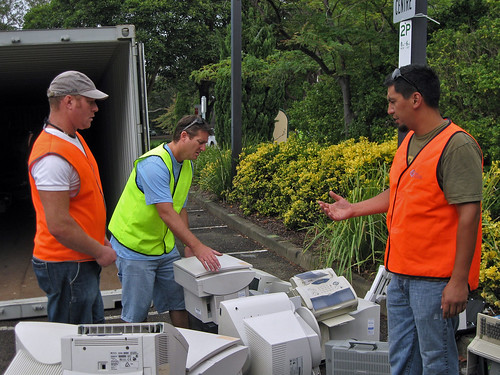It can prove difficult to have to walk into the boss’s office to explain why some of the customers’ data ended up in the hands of unauthorized persons, simply because you made the wrong choice in getting rid of the computers. It can be a shocking experience when used electronics from your business end up in unregulated waste dumpsites and is being melted down and disassembled by unauthorized parties. Sounds scary and a bit beyond possibility, but these are realities that can happen anytime when you throw caution away.
It is a well-established fact that electronic waste is growing at a fast rate on the planet. Because computers, TVs, mobile devices and other devices contain valuables, the temptation is to extract that valuable material at any human cost and environmental consideration. Nevertheless, there has been growth in e-waste removal in Perth that has given room to attractive trade-in programs, a growing market of used electronics and new recycling companies.
Unfortunately, it has also increased chances of doing things wrong, at considerable amount of costs to your company’s reputation, the environment and the society. As complicated as it may all seem, by following several simple rules, you will avoid making mistakes that have the capacity of haunting you into the long-term. Do the right thing by your company, contact Swann Rubbish Removal for all your e-waste removal.
Rule 1: Know your recycler

There is an endless list of companies offering to recycle your equipment. However, the number of service providers that you should be considering to work with should be relatively small. As you shop around for recyclers avoid dealing with companies that are not certified.
A certified company will make sure your data privacy and the environment is protected highly. Furthermore, the certification requires a downstream accountability, which makes sure that your equipment or machines will remain in the correct hands throughout the process of disposition. Avoid working with service providers that promise to involve a certified recycler somewhere down the process. Your safest route lies in working directly with recyclers who have in their possession certifications and can offer prove of it. If you get to know your recycler, you will be able to be at rest knowing you have not created a reputation risk for yourself as well as your company. And you stand to get value for your money.
Rule 2: Be realistic
If an idea sounds too good to be true, it probably is. The same way you are discouraged from investing in cheap goods the principle holds with recycling. You cannot afford cheap electronic recycling. “Free” recycling services can be witnessed around the city but the reality is responsible recycling is not cheap. In addition, some of the equipment you want recycled have enough value that sometimes your recycler will be paying you as opposed to you paying.
When you use a “free” program you are often presented with two competing risks. One is the idea of cutting corners by failing to use certified recyclers or to simply move equipment to the highest bidder. Both of these scenarios create a risk that the inventory will end up in the wrong hands. The outcome will be the possibility of environmental degradation and data breaches. The second risk is financial because “free” services make it less likely you will get full value.
Rule 3: Create formal plans for disposition
Create formal plans for disposition that you can follow religiously. The data security framework specifically calls for equipment to be managed formally throughout the removal and transfers, as well as disposition. When building your business’s data security plan, make sure to include protocols for disposition. Include statements that mandate the use of recyclers who are certified for IT asset disposition.